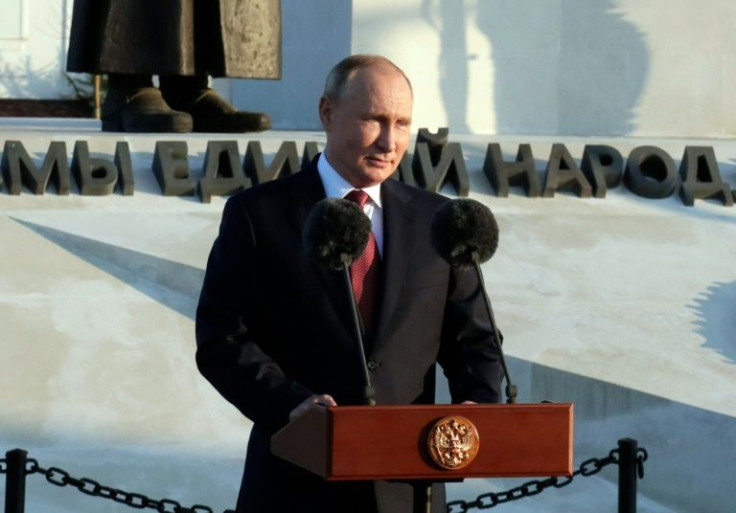From Cabbie To Kremlin: Putin Said He Once Worked As A Taxi Driver In 1990s
Vladimir Putin talked about becoming a taxi driver to make ends meet in 1990s post-Soviet Union Russia in a documentary that aired Sunday on Russian state TV called “Russia. Recent History.”
“Sometimes [I] had to moonlight and drive a taxi. It is unpleasant to talk about this but, unfortunately, this also took place,” Putin said in the documentary.
It is unclear at what point in the decade Putin was a taxi driver.
Putin, 69, held several high-profile public sector positions in the 1990s before becoming prime minister in 1999.
He studied law at Saint Petersburg State University, then-called Leningrad State University, and later worked for the KGB in communist East Germany.
He worked in local government in his hometown of St. Petersburg before working in Moscow as the deputy chief of the Presidential Property Management Department. He would later move on to serve on President Boris Yeltsin's staff. On New Year’s Eve 1999, Yeltsin resigned, and he named Putin acting president.
The Russian constitution does not allow for a third consecutive term, so Putin has been serving intermittently as president and prime minister since 2000. His current term has lasted since 2012 — nine consecutive years — which makes him the longest-serving Russian leader since Joseph Stalin.

Putin has a reputation in Western countries for being the antithesis of democracy, a powerful man who believes he can get away with anything.
In the documentary looking back on Russia's recent history, Putin discusses the “disintegration of historical Russia under the name of the Soviet Union.” The Russian leader lamented the loss of 25 million people in newly formed countries after the Soviet breakup, calling it “a major humanitarian tragedy.”
The remarks about moonlighting as a taxi driver come amid growing criticism of Putin. Alexei Navalny, an anti-corruption campaigner and a harsh critic of Putin, survived poisoning with a nerve agent and was imprisoned. Many believe Putin is responsible for the treatment of Navalny.
Meanwhile, there is growing international concern that Russia plans to invade Ukraine. The Kremlin has dismissed this claim as Western propaganda. There are approximately 120,000 Russian military personnel positioned along the border, according to Ukrainian defense officials.
© Copyright IBTimes 2024. All rights reserved.






















